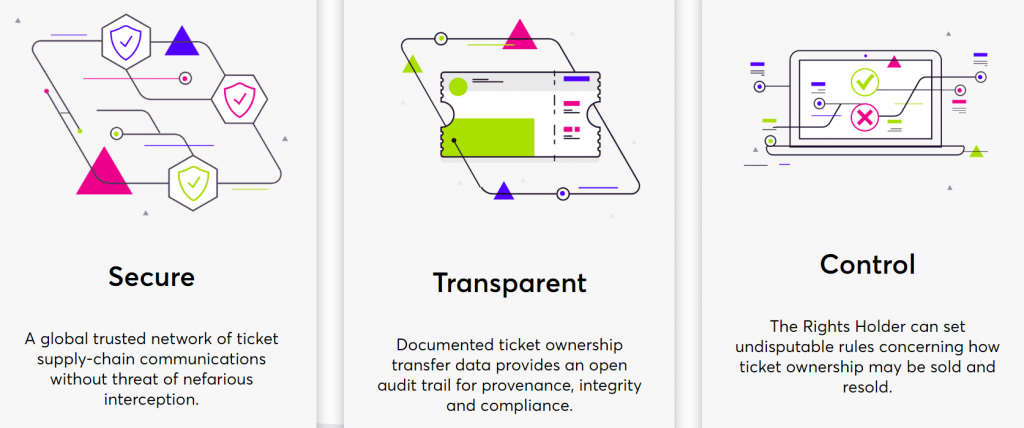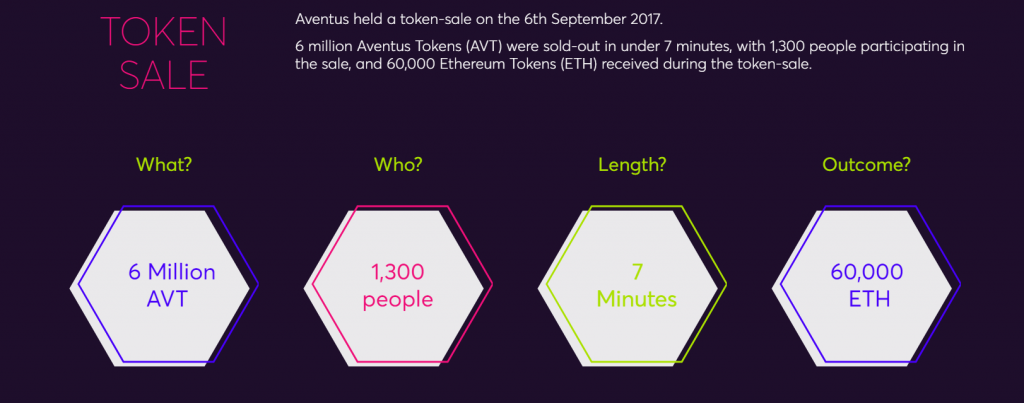While the current ticketing industry gets the job done, it is far from perfect. To understand, you have to know about the two segments of the market. There is the primary market, and the secondary market. The primary market is when the venue and performers set the prices, distribution, revenue splits and more.
However, it is the secondary market (the resale market), where the problems exist. This is because touts and scalpers essentially buy up all the available tickets and sell them at an inflated price. This market is unregulated and often people are charged too much for tickets or simply scammed completely.
So, as you can see, the current system is broken and doesn’t seem very fair at all. However, there is a potential solution that is leveraging the power of blockchain technology to make ticketing smarter than ever before. It is called The Aventus Protocol, and this article will tell you about what it is, what it is hoping to do, and so much more.
What is Aventus Protocol?

The Aventus Protocol is an open-source protocol that is hoping to become the gold standard for ticketing going forward. This blockchain-based protocol allows the holders of rights to define rules not only for the primary market, but also for the secondary market. If sellers of all kinds don’t adhere to these rules, they won’t be able to sell on the protocol.
By sales occurring through Aventus, organizers and rights holders can ensure that resale prices are within a certain range, which will prevent touts and scalpers from taking advantage of true fans. Not only that, but Aventus Protocol also allows event organizers to create and promote their events in a much more affordable manner.
They bring a much-needed transparency to an industry that was full of fraudulent behaviour, scams and unfair ticket prices for all kinds of events including sports games, concerts, shows and more. In addition to that, Aventus also brings added security thanks to the use of blockchain technology. Each ticket will have a unique modifier on the blockchain which will prevent counterfeits and will ensure a fair and open transaction for every ticket.
The Aventus Ecosystem
The core of the Aventus Protocol is a smart blockchain ticketing smart contract backbone, which is built on the Ethereum network. This ecosystem has three different “layers” per se, the core protocol, the service layer and the application layer. The core protocol is the global pool of events in the smart contracts, with rules that are set by the original creator of the tickets and then enforced by the economic model within the protocol.
The service layer is the enterprise version of the protocol, the blockchain scaling mechanisms, validation services and other things built by third parties. These services will make using the protocol as easy and efficient as possible for developers. More services will likely be added and developed over time as well. While some of these services will come at an additional cost, they will make things much easier.
And lastly, the application layer is the actual ticket selling applications that will either go direct-to-protocol or use other “wrappers” such as Ticketmaster. These will go over the top of the service layer and will often be developed by third parties, though Aventus is creating and launching the first ticket sales application.
As you can see, a lot of technology and work goes into each ticket, app and transaction, to ensure that everything is fair, safe, secure and best of all, transparent. If you want to learn more about the technology and inner workings of the Aventus Protocol, be sure to check out their whitepaper.
AVT

AVT is a utility token that is essentially the fuel of the Aventus Protocol ecosystem. It is essential to use within the platform and will help to ensure fraudulent behaviour is taken care of. AVT is used by the network in three main ways, which are voting, creating and facilitating.
The ecosystem will use the token for voting on the legitimacy of events within the protocol. This will help reduce spam in the network and ensure that due diligence is done. The token will also assist in creating a token-curated registry of applications that are deemed to be legitimate. Lastly, AVT will be used to facilitate the transactions made between ticket buyers and ticket sellers in the secondary market that we mentioned earlier. This will ensure that all rules and met and followed, and will prevent people from circumventing them.
The team at Aventus held a token sale for AVT back on September 6th 2017. 6 million tokens were sold in less than 7 minutes, to around 1,300 people. 60,000 ETH were received in the sale, which has a current value of nearly $50 million USD as of the writing of this article.
The Aventus Protocol Foundation
The Aventus Protocol is run by the Aventus Protocol Foundation, which is a Jersey-based non-profit. Their mission is to develop and market the protocol, and also to grow the associated ecosystem. They also protect the rights of AVT holders. No one in the foundation (or any of their partners) get any sort of revenue from the ecosystem or protocol.
In conclusion, the Aventus Protocol could be the potential solution for a growing problem with ticketing. It would help the transparency and fraud problems, while also being a more efficient and cost-effective way of doing business for event holders and original ticket sellers and creators.
Add in the great security benefits because of blockchain technology, which will surely be a welcomed addition to the industry. While no solution can be perfect right out of the gate, Aventus is seemingly doing a lot of things right and the potential for the ecosystem is large.


